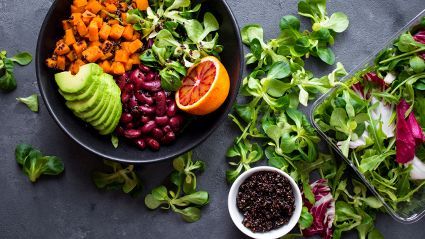
Are you overweight or struggling with type 2 diabetes? Try going vegan, researchers suggest in a new data review. Vegan diets are high in fruits, vegetables, nuts, legumes and seeds and have no animal-derived foods. The meta-analysis of 11 studies published through March 2022 that included a total of nearly 800 people found that following… read on > read on >






























